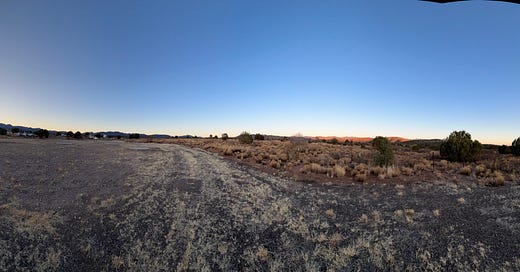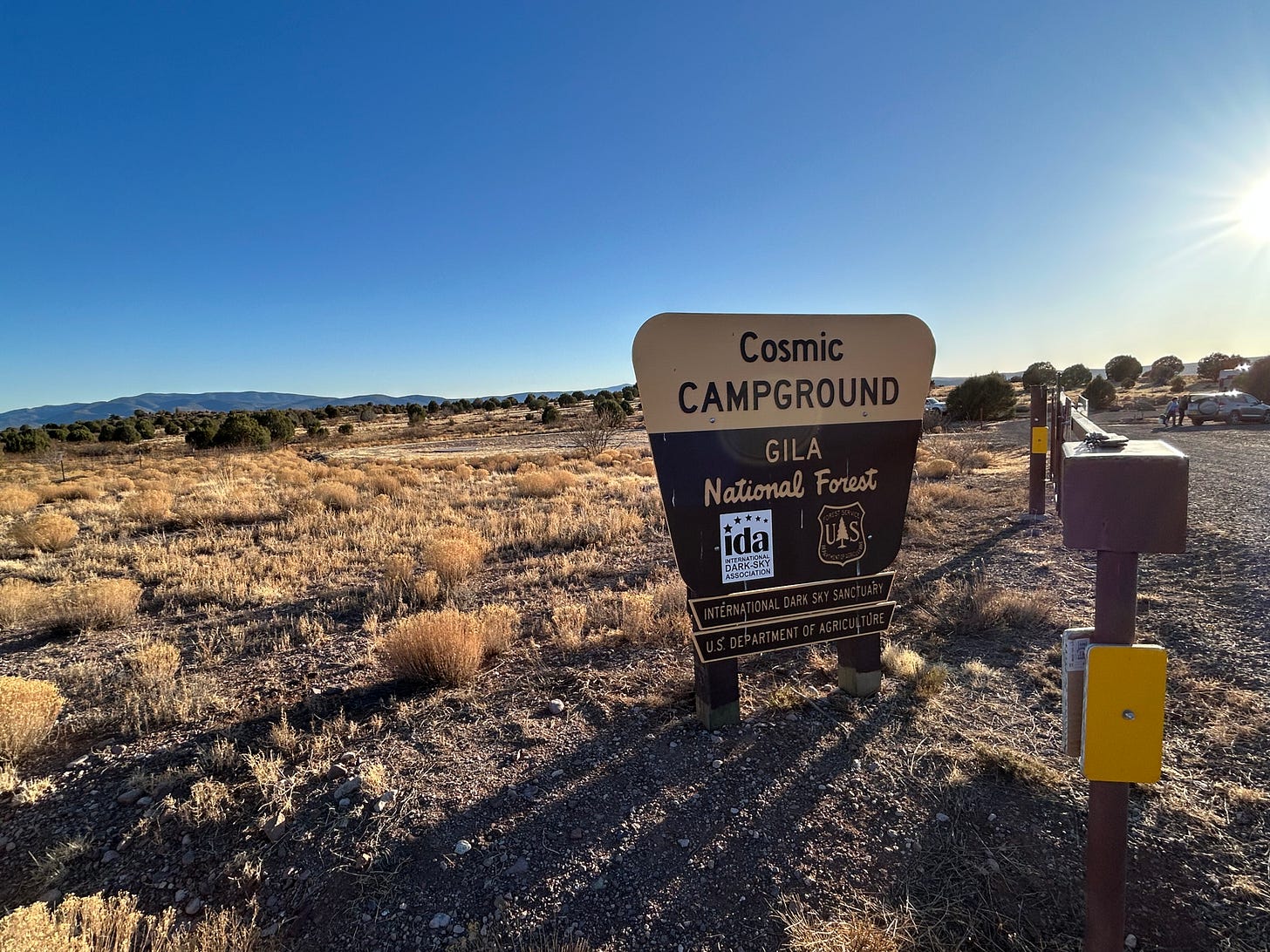This short note reflects my curiosity about the concept of awe, exploring it through both scientific inquiry and philosophical contemplation. More importantly, it captures my personal journey into experiencing awe firsthand, particularly during a recent visit to the Cosmic Campground in New Mexico's Gila National Forest. This intriguing exploration of the science and philosophy of awe includes my personal experience of stargazing at the Cosmic Campground, known as the Cosmic Campground International Dark Sky Sanctuary. It is one of the 14 International Dark Sky Association (IDA) certified locations in the world.
Research shows that experiencing awe can have remarkable effects on our minds and bodies. When we encounter awe-inspiring moments, our brains release feel-good chemicals like dopamine, which boosts our sense of pleasure, and oxytocin, which fosters social bonding and reduces stress. Awe can also increase serotonin, helping to regulate our mood, while the release of endorphins enhances our immune system and lowers blood pressure. These powerful responses not only elevate our emotional well-being but also connect us to something larger than ourselves.
Beyond neuro-chemical responses, various studies have examined the effects of awe on consumer preferences, human emotions, and even creativity. Philosophers like Arthur Schopenhauer (1788-1860, Germany) explored the concept of the sublime, linking it to experiences of awe and wonder often found in nature, music, and art. He believed these moments could offer a brief escape from suffering.
Intrigued by this idea, I decided to immerse myself in the experience of awe. Our recent trip to the Cosmic Campground in New Mexico's Gila National Forest—a place renowned for having one of the darkest skies in the world—certainly lived up to its reputation.
Honestly, it felt like stepping inside a planetarium, with stars stretching from wall to wall, horizon to horizon—like an inverted bowl of cosmic wonder. Sure, it was a bit cold, but the enveloping darkness and stillness, combined with the stars twinkling above, created an unforgettable experience.
To top it off, a misty curve of the Milky Way instilled a sense of awe that I suspect will stay with us forever. While we didn’t get around to using the telescope pads at the campground, we noticed several campers quietly soaking in the beauty of the night sky. Who knew that just looking up could be so mesmerizing?
It’s fascinating how experiences of awe—whether from the vastness of the cosmos, the intricacies of music, or the beauty of art—can elevate our well-being and remind us of something greater than ourselves. As Schopenhauer suggested, these moments are not just fleeting; they can offer us profound insights into the nature of existence itself, leaving us with a deeper appreciation for the world around us. Much like these modern thinkers, thousands of years ago, Vedic sages on the banks of the Saraswati River contemplated the same mysteries.






